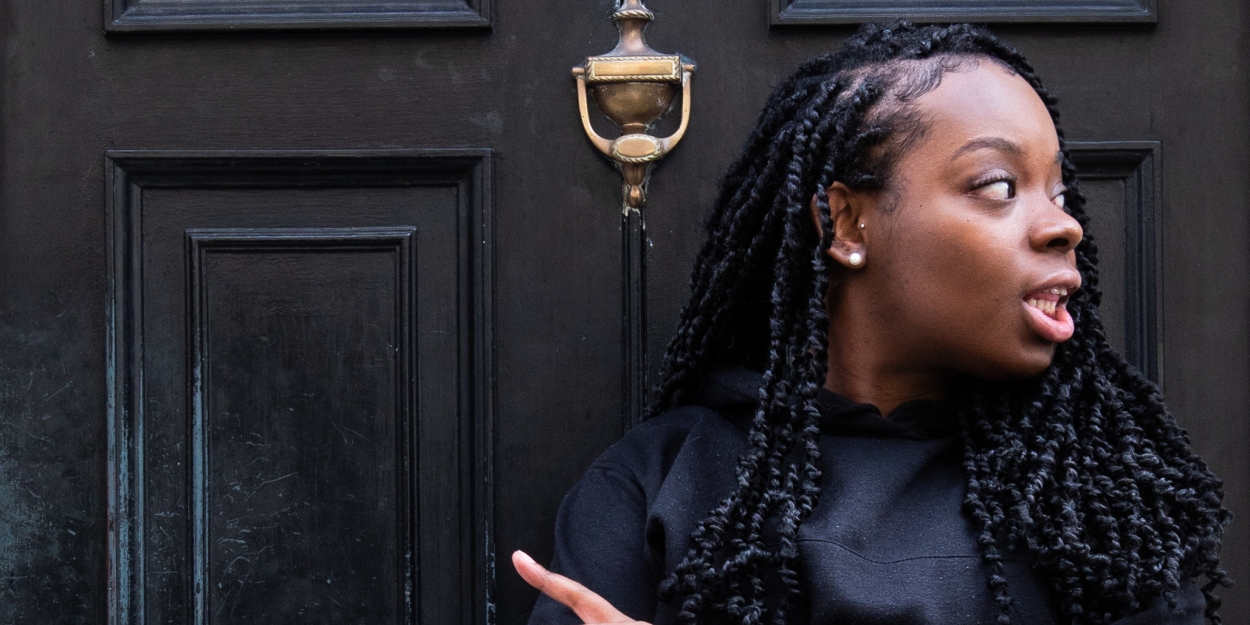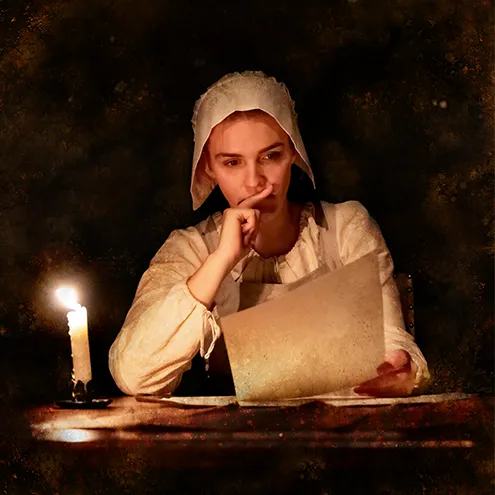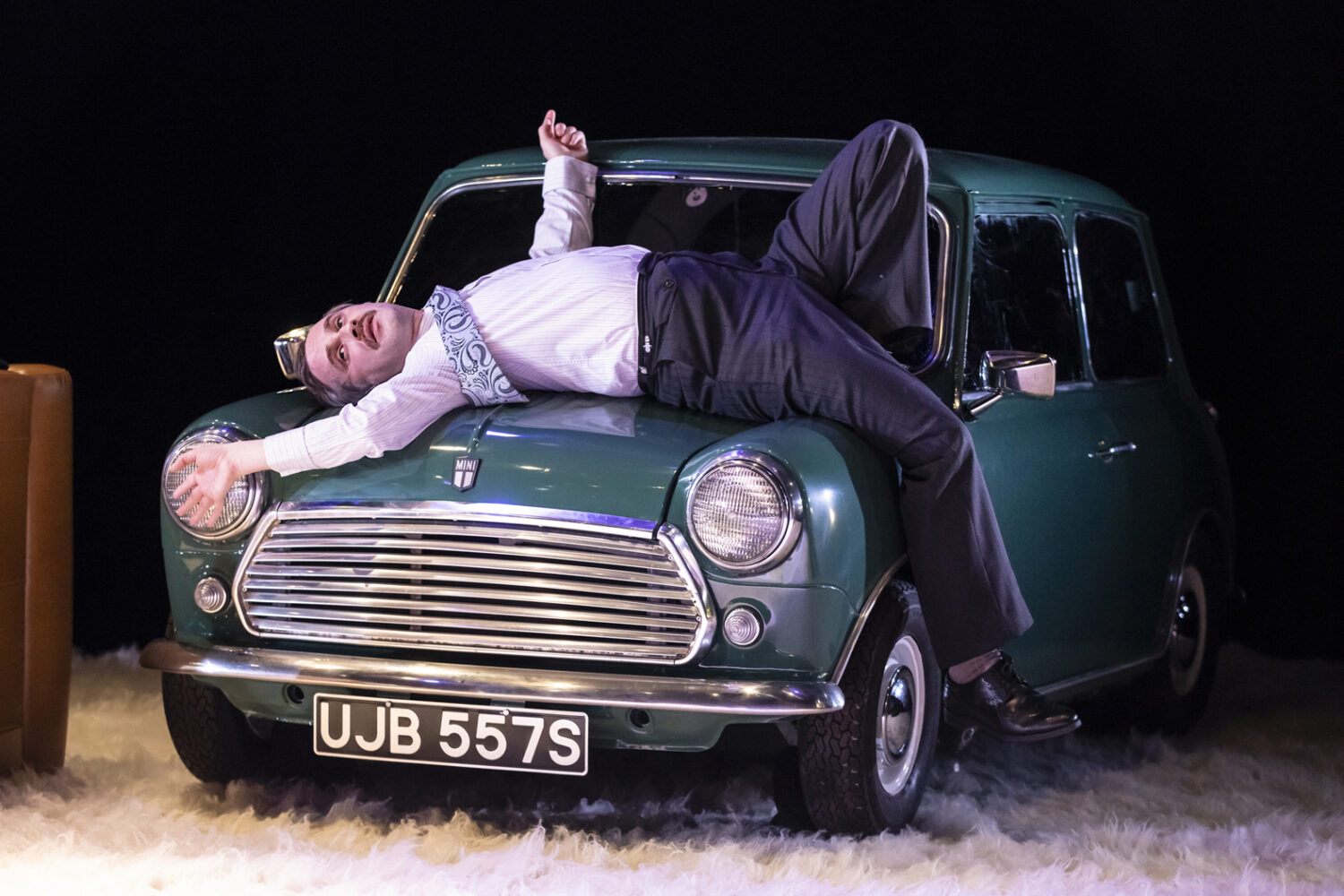
Tegan Verheul’s new play, Surrogates, which plays at The Glitch as part of A Pinch of Vault festival, sees an imagined future where AI replicas of humans are so convincing they are indistinguishable from us.
Originally from Vancouver, Canada, the London-based actor, comedian, and playwright’s play is presented by the collective of women and femmes Verheul co-founded, The WWWC.
Verheul’s most recent play, Artist/Muse was co-written with Diana Feng and Clarisse Zamba, two creative conspirators from the WWWC, and premiered at this year’s Edinburgh Fringe Festival and her autobiographical comedic solo show, Chokeslam, also premiered in Edinburgh this year.
We caught up with Verheul to find out more about The WWWC and the inspiration for Surrogates.
Q&A with Tegan Verheul
What can you tell us about The WWWC?
The WWWC is a non-hierarchical creative collective of women and femmes dedicated to fostering creativity and uplifting marginalised voices. We create bold new work that invigorates and disrupts. After meeting at the MA Acting program at the Royal Central School of Speech and Drama, a small but diverse, unique but like-minded group of us forged ahead to create the WWWC. We’ve since absorbed new collaborators and co-conspirators from creative corners around London and beyond. The majority of our company and the cast and creatives we engage are from underrepresented and/or marginalised communities.
What’s it like to be taking your new play Surrogates to A Pinch of Vault?
It’s thrilling! This play started as some frantic scribbling in my notes app in 2022, and now it’s going to be read in front of an audience. I’m very grateful Pinch of the Vault selected this show to be a part of the stellar line-up for this festival, and grateful to the talented cast who’ve stepped up to tackle this massive ensemble show. I’ve been writing this for almost a year now, and I’m excited to see where it goes after this.

What can you tell us about the play and its inspiration?
I was on a walk through Hampstead Heath, listening to a podcast talking about AI and all the moral and ethical issues that underpin this technology. There was so much I hadn’t thought about before! The more I researched, the more I was terrified about the types of AI already available and already in use–a lot of the dystopian elements in the play are not potential or theoretical, they’re products and processes already in use. Creating AI replicas of your loved ones so you can keep talking to them after you die… Proprietary algorithms that decide how prisoners are sentenced, but they’re hugely discriminatory… I think AI technology is useful in so many ways and has improved lives and has interesting implications for art and creative processes, but I think it’s so important to consider the ways in which they will continue to replicate and reinforce a deeply unjust world with greater efficiency than humans if we don’t intervene now. The play deals with a lot of serious issues and has really high stakes, but it’s also profoundly silly because I think the world right now is a little ridiculous. Some days I think we’re living in a sci-fi Monty Python sketch, but it’s our reality.
How have you approached directing the play?
My approach to directing Surrogates was to start with great actors. Everyone is incredibly talented and professional and nailed their characters on the first read-through, so it made shaping the play and working with the tempo and beats of each scene easy. I like to use Open Space Technology in my rehearsals–it’s a set of principles that Improbable (along with a number of other theatre companies) uses to empower cast and creatives and create an environment where collaboration and collective responsibility are encouraged. By assuming everyone is equally passionate about and dedicated to the project, it tends to inspire more involvement and more creativity from everyone. It also aligns with my non-hierarchical approach to co-creation in theatre; while I have a vision for the play, I find the best ideas come from collaboration and that being flexible and open to that ensures we end up with the best show possible that honours both the text and the talent bringing it to life.
Is there anything you hope audience take away from the production?
I hope audiences leave Surrogates and stay up all night thinking about it. I hope their stomachs hurt from laughing. I hope they tell their friends and family about the show and its ideas and the brilliant people that were involved. And most of all, I hope it changes a part of them. I hope it ignites a spark of interest about the ethics of AI, about social inequity, about our political landscape, about the revolutionary potential in us all. I think comedy has enormous power to affect social change by challenging people’s ideas because it makes those issues more accessible, and I hope this play accomplishes that.
Surrogates plays at The Glitch as part of A Pinch of Vault on 13 and 14 February 2024















